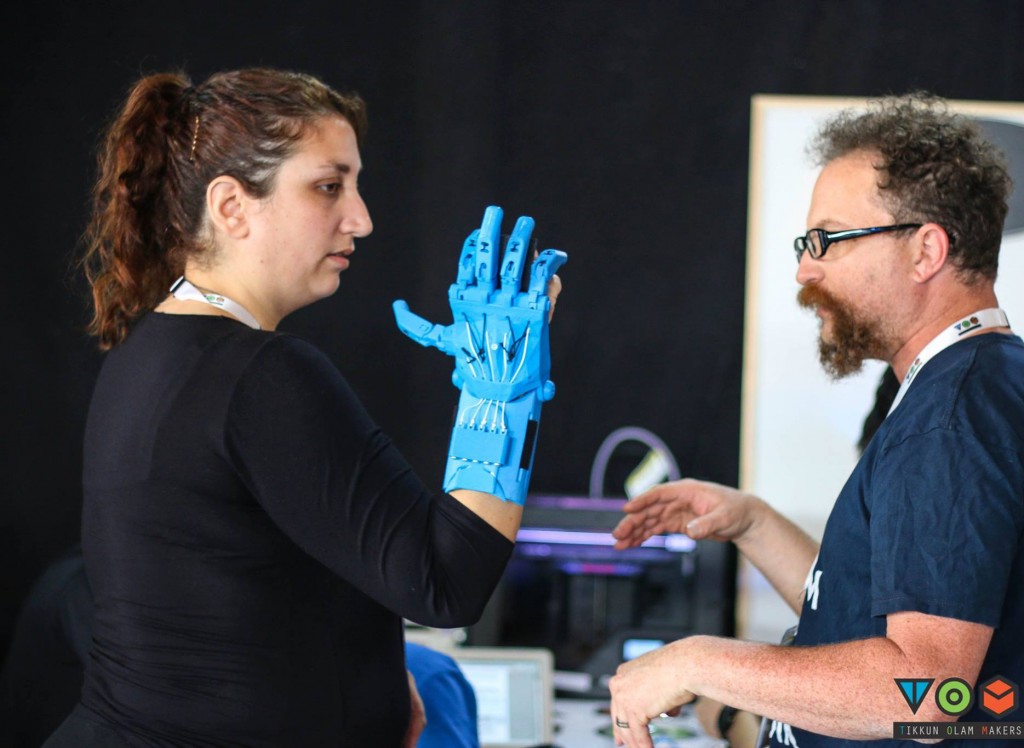MakerBot and the Tikkun Olam Makers (TOM) are joining forces at this year’s Bay Area Makeathon to focus exclusively on assistive devices. TOM, a non-profit maker community, is calling on developers, designers, and innovators to develop assistive prototypes for those with disabilities using MakerBot desktop printers. The Bay Area Makeathon, also sponsored by Google.org, will take place at the San Fransisco branch of the TechShop between September 11-13, and hopes to bring the brightest Bay Area minds together for 72 hours to help improve the well-being of those who are disabled. This year’s Makeathon is a part of Google’s Impact Challenge for Disabilities, a call for innovators to aid the world’s disabled population, a perfect sponsor for an event that is bringing great minds together to create assistive device prototypes.
Thanks to MakerBot, the official 3D printing partner of the Bay Area Makeathon, attendees will be able utilize the entire MakerBot 3D ecosystem, which includes their Replicator printer, MakerBot’s design software and cloud platform mobile application, and access to the Thingiverse community, where the submitted prototypes will be remixed and improved by this MakerBot design network after the event is finished. MakerBot will also featuring their Replicator Smart Extruder, which will enable participants to swap a worn extruder, allowing for minimized printing downtime and quick adaptation in the ever-expanding 3D printing industry. Their Makerbot desktop printer and ecosystem is used at all TOM events, where we have already seen the creation of 3D printed walking devices, connected crutches, reading aid devices, and much more in past events.
The most innovative assistive device prototype created at the Makeathon will be chosen by a well-established panel of judges that include MakerBot CEO Jonathan Jaglom, CEO of Maker Media Dale Dougherty, Google Life’s Senior Engineer Anupan Pathak, and Google X’s Tom Chi. After the 72 hours of the Makeathon are up, the panel will decide on the most innovative assistive device prototypes, which will then be uploaded onto Thingiverse for the MakerBot community to help develop the project further. From that point, the prototype is developed by an entire community, participants may have the opportunity to see their assistive technology evolve on Thingiverse, much like the Robohand Project did after being introduced to the MakerBot network.
There are endless possibilities for 3D printing innovation, but when the innovative minds behind MakerBot, TOM, and Google join forces, the potential for these possibilities to become a reality grows ten fold. With the help and guidance of these aforementioned sponsors and organizations, the Bay Area Makeathon hopes to get people with all types of backgrounds and skills to focus their energy on designing and printing assistive devices for the disabled community.



